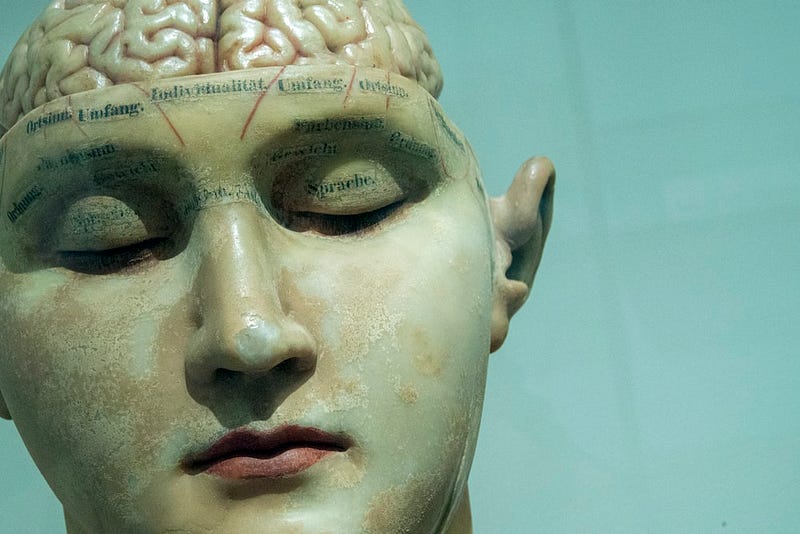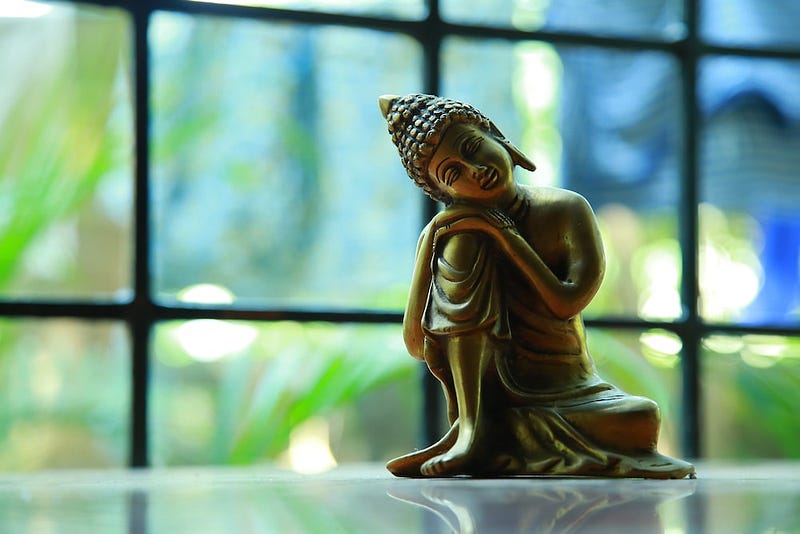Exploring the Depths of Meditation: A Guide to Common Questions
Written on
Chapter 1: Understanding Meditation
In the journey of self-discovery, many questions frequently arise regarding the practice of meditation. While I do not consider myself a teacher or role model, I have encountered the wisdom of others and strive to internalize these teachings. Here, I aim to share some of these insights through common inquiries about meditation.
Is meditation a form of religion?
No, meditation is not tied to any specific deity or rituals. Rather, it serves as a means of self-understanding, allowing individuals to cultivate happiness rather than despair. It invites practitioners to let go of preconceived beliefs and to trust their own experiences. While respecting and learning from teachers can be beneficial, the true essence of meditation lies in personal exploration and understanding.
Do not let your beliefs—be they atheistic or based in a specific faith—hold you back from meditation. Anyone grappling with mental suffering can find solace in this practice. You need not abandon your identity as an atheist, Christian, Muslim, or member of any faith; meditation can enhance your clarity, compassion, and understanding, regardless of your background.

If religious practices inspire you, embrace them. If not, feel free to let them go. Photo by cottonbro studio from Pexels.
Is meditation a way to escape reality?
Not at all. Some individuals may engage in meditation by focusing on mantras or visualizations, experiencing temporary joy. While this can be beneficial, it does not lead to lasting happiness. Upon returning to reality, the same issues persist. This form of meditation can serve as an escape, akin to substance use, rather than a genuine confrontation with one’s challenges.
True meditation, as I have learned, is about facing reality head-on. It reveals the patterns of your mind and encourages you to observe them honestly, relying solely on your wisdom. You become acutely aware of both your mind and body, acknowledging the full spectrum of human experience, including joy and pain.

Meditation compels you to confront your fears and hardships. Photo by Thiago Matos from Pexels.
Can meditation heal physical or mental ailments?
That is not its primary purpose. Certain physical and mental conditions may arise from damaging thought patterns, and meditation can facilitate improvement in such cases. However, it's vital to approach meditation without the expectation of healing. Consult a medical professional for any health issues. Nevertheless, meditation can provide relief from suffering, which is a valid reason to begin practicing.
Is enlightenment equivalent to self-destruction?
No, this misconception has circulated since Buddhism’s introduction to the West. Enlightenment represents profound clarity and understanding of reality and the self, leading to inner peace and compassion. Ego dissolution does not equate to self-harm; rather, it signifies liberation from the narrow self-concept that generates suffering.

Engage in meditation to discover these truths for yourself. Photo by Pixabay from Pexels.
If the self is an illusion, what is our true nature?
We are composed of interconnected elements often referred to as the five aggregates: form, feeling, perception, mental formations, and consciousness. Together, they shape our experiences and sense of self. We are not static entities but dynamic processes governed by the law of cause and effect, applicable to all aspects of nature. While we possess self-awareness and the ability to make moral choices, we also have the potential for enlightenment. By grasping the illusion of self, we can transcend suffering and eliminate its causes.

We often mistake reflections for permanence. Photo by Randy Jacob on Unsplash.
Who is the observer?
The inquiry, “Who observes the observer?” can lead to misconceptions similar to those in Descartes’ philosophy, which assumes a fixed self must exist behind thoughts and feelings. His assertion, “I think, therefore I am,” suggests the existence of a stable self, which is not supported by our true experiences.
Upon deep reflection, you may find no constant self—just the transient nature of thoughts and feelings. The observer is not a singular entity but a manifestation of consciousness that arises and fades with each experience.
What is the link between the mind and the brain?
The brain is a physical organ, whereas the mind encompasses feelings, perceptions, mental formations, and consciousness. These elements cease to exist upon death, marking the separation of a living being from a lifeless body. The mind and body are intricately connected, with the mind permeating every part of the body. This connection allows for meditation, enabling an ongoing observation of the interplay between mind and body, which can lead to a profound understanding of their relationship.

Photo by David Matos on Unsplash.
Does meditation lead to passivity?
Quite the opposite. Meditation encourages active engagement. Without it, many navigate life merely reacting to circumstances. It may seem like we make choices, but often, we are trapped in a cycle of cause and effect, pursuing fleeting pleasures that ultimately elude us.
Meditation creates space for thoughtful responses. It allows you to appreciate positive emotions without clinging to them and to experience negative emotions without despair.

I hope these reflections prove helpful. Please feel free to share any questions or thoughts in the comments.
After spending the last two months at a monastery, I have relocated to India and will resume daily writing soon as I settle into a stable environment.
Chapter 2: Videos on Meditation Insights
Explore Your Mind! - YouTube: This video delves into the intricacies of meditation, offering insights that can deepen your understanding of the practice.
Manage Your Nerves, Unlock Your Mind & Find Your Power | AMA Vol. 18 w/ Dr. Michael Gervais - YouTube: Dr. Gervais discusses how meditation can help manage anxiety and unlock your inner potential, providing practical tips for personal growth.